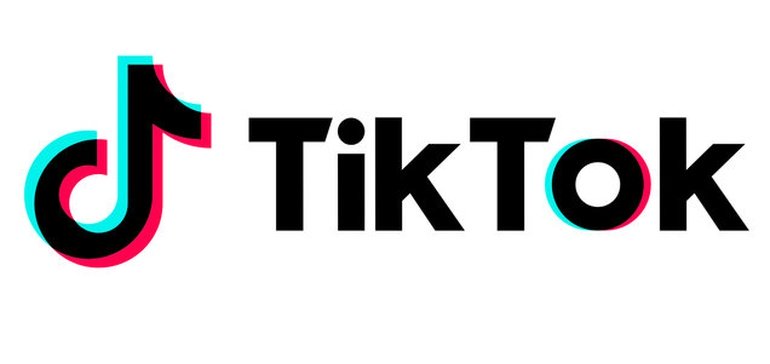The new app is called watchGPT and as I tipped off already, it gives you access to ChatGPT from your Apple Watch. Now the $10,000 question (or more accurately the $3.99 question, as that is the one-time cost of the app) is why having ChatGPT on your wrist is remotely necessary, so let’s dive into what exactly the app can do.
NEWS
TikTok’s Taking Legal Action Against the Trump Administration’s Attempts to Ban the App in the US

After assessing its options following the Trump administration’s Executive Order, which will essentially force it to sell to a US company, or face a ban in the American market, TikTok has now confirmed that it will indeed be pursuing legal action against the US Government over the official directive.
In a statement, TikTok has explained the pending action, saying that it sees no other option but to challenge the Order:
“Even though we strongly disagree with the Administration’s concerns, for nearly a year we have sought to engage in good faith to provide a constructive solution. What we encountered instead was a lack of due process as the Administration paid no attention to facts and tried to insert itself into negotiations between private businesses.”
The statement echoes similar remarks TikTok made in its initial response to the EO, which TikTok says was put together without “due process or adherence to the law”.
“The text of the decision makes it plain that there has been a reliance on unnamed “reports” with no citations, fears that the app “may be” used for misinformation campaigns with no substantiation of such fears, and concerns about the collection of data that is industry standard for thousands of mobile apps around the world.”
And TikTok may well have a point – while there are significant concerns around TikTok’s operations and processes, there’s no publicly available evidence to prove that it’s actually shared data on US users with the CCP, nor that it’s censored content on behalf of the Chinese regime.
For example, in the White House EO, it notes that:
“TikTok also reportedly censors content that the Chinese Communist Party deems politically sensitive, such as content concerning protests in Hong Kong and China’s treatment of Uyghurs and other Muslim minorities.”
There has, indeed, been some suggestion that TikTok has filtered out content related to the Hong Kong protests, though no definitive evidence has been found to support such, while TikTok has also sought to clarify various misunderstandings around supposed action it’s taken against creators who’d posted content about China’s treatment of Uighur Muslims.
In neither case is there any definitive evidence – at least, none that would stand up in a legal challenge. Which is why TikTok is now moving to the next stage.
“To ensure that the rule of law prevails and that our company and users are treated fairly, we have no choice but to challenge the Executive Order through the judicial system,”
The action makes sense, though it’s not likely to do much to endear TikTok to US officials, which could, eventually, make things even more difficult for the app.
TikTok’s decision to take the next legal step could also indicate that the negotiations over its potential sale to a US buyer – likely Microsoft – are not progressing as expected. As noted, in TikTok’s initial statement on the Executive Order, it did float the possibility of legal action, but the view was that TikTok would only want to pursue that course of action as a last result, for fear of further pitting itself against the Trump administration.
Microsoft seemingly remains the leading bidder for TikTok, which some have valued at around $30 billion, but there are various concerns which could see the company hesitate in pulling the trigger on such a massive deal.
Could the discussions have deteriorated to a point where TikTok feels the need to take this back-up step? You can be sure that Microsoft, as the potential owner of TikTok, would not be keen on having any involvement in a legal battle with the US Government.
Of course, that case theoretically goes away if the Microsoft deal does go through, but even so, the fact that TikTok is taking this next legal advance could reflect concerns that things are not going to work out as hoped.
But then again, there are other suitors. Oracle was this week revealed as one of several partners in a consortium looking to make a bid for the platform, while Google had also, at one stage, considered contributing to a collective bid for the platform, before changing its mind.
There are, seemingly, options available that would keep the platform running, but TikTok’s decision to head to the courtroom doesn’t seem to be a great sign.
But then again, it could also be a delaying tactic – maybe, if TikTok can delay any decision until after the US Election, it might be able to renegotiate its status with a new Presidential regime. If Trump were to lose the vote – and Trump has repeatedly noted that the action against TikTok is more about punishing China for COVID-19 than it is about security fears. If Trump were no longer in charge, maybe, a new President would be more sympathetic to the situation – or at the least, be more willing to base any such decision in the rule of law, as opposed to thinly veiled vendettas.
Maybe, then, TikTok’s legal action is less about winning the case, as such, and more about prolonging the app’s availability. Which could work, given the official grounds of the initial order.
Either way, according to TikTok general manager Vanessa Pappas, the app is not going anywhere:
“We believe we have multiple paths forward to ensure that we continue to provide this amazing app experience to the millions of Americans who come to rely on it every day.”
Evidently, a legal challenge is another of those paths. Now to see how that plays out – with the app’s September 15th deadline inching ever closer.
Facebook Faces Yet Another Outage: Platform Encounters Technical Issues Again

Uppdated: It seems that today’s issues with Facebook haven’t affected as many users as the last time. A smaller group of people appears to be impacted this time around, which is a relief compared to the larger incident before. Nevertheless, it’s still frustrating for those affected, and hopefully, the issues will be resolved soon by the Facebook team.
Facebook had another problem today (March 20, 2024). According to Downdetector, a website that shows when other websites are not working, many people had trouble using Facebook.
This isn’t the first time Facebook has had issues. Just a little while ago, there was another problem that stopped people from using the site. Today, when people tried to use Facebook, it didn’t work like it should. People couldn’t see their friends’ posts, and sometimes the website wouldn’t even load.
Downdetector, which watches out for problems on websites, showed that lots of people were having trouble with Facebook. People from all over the world said they couldn’t use the site, and they were not happy about it.
When websites like Facebook have problems, it affects a lot of people. It’s not just about not being able to see posts or chat with friends. It can also impact businesses that use Facebook to reach customers.
Since Facebook owns Messenger and Instagram, the problems with Facebook also meant that people had trouble using these apps. It made the situation even more frustrating for many users, who rely on these apps to stay connected with others.
During this recent problem, one thing is obvious: the internet is always changing, and even big websites like Facebook can have problems. While people wait for Facebook to fix the issue, it shows us how easily things online can go wrong. It’s a good reminder that we should have backup plans for staying connected online, just in case something like this happens again.
NEWS
We asked ChatGPT what will be Google (GOOG) stock price for 2030

Investors who have invested in Alphabet Inc. (NASDAQ: GOOG) stock have reaped significant benefits from the company’s robust financial performance over the last five years. Google’s dominance in the online advertising market has been a key driver of the company’s consistent revenue growth and impressive profit margins.
In addition, Google has expanded its operations into related fields such as cloud computing and artificial intelligence. These areas show great promise as future growth drivers, making them increasingly attractive to investors. Notably, Alphabet’s stock price has been rising due to investor interest in the company’s recent initiatives in the fast-developing field of artificial intelligence (AI), adding generative AI features to Gmail and Google Docs.
However, when it comes to predicting the future pricing of a corporation like Google, there are many factors to consider. With this in mind, Finbold turned to the artificial intelligence tool ChatGPT to suggest a likely pricing range for GOOG stock by 2030. Although the tool was unable to give a definitive price range, it did note the following:
“Over the long term, Google has a track record of strong financial performance and has shown an ability to adapt to changing market conditions. As such, it’s reasonable to expect that Google’s stock price may continue to appreciate over time.”
GOOG stock price prediction
While attempting to estimate the price range of future transactions, it is essential to consider a variety of measures in addition to the AI chat tool, which includes deep learning algorithms and stock market experts.
Finbold collected forecasts provided by CoinPriceForecast, a finance prediction tool that utilizes machine self-learning technology, to anticipate Google stock price by the end of 2030 to compare with ChatGPT’s projection.
According to the most recent long-term estimate, which Finbold obtained on March 20, the price of Google will rise beyond $200 in 2030 and touch $247 by the end of the year, which would indicate a 141% gain from today to the end of the year.
Google has been assigned a recommendation of ‘strong buy’ by the majority of analysts working on Wall Street for a more near-term time frame. Significantly, 36 analysts of the 48 have recommended a “strong buy,” while seven people have advocated a “buy.” The remaining five analysts had given a ‘hold’ rating.

The average price projection for Alphabet stock over the last three months has been $125.32; this objective represents a 22.31% upside from its current price. It’s interesting to note that the maximum price forecast for the next year is $160, representing a gain of 56.16% from the stock’s current price of $102.46.
While the outlook for Google stock may be positive, it’s important to keep in mind that some potential challenges and risks could impact its performance, including competition from ChatGPT itself, which could affect Google’s price.
Disclaimer: The content on this site should not be considered investment advice. Investing is speculative. When investing, your capital is at risk.
NEWS
This Apple Watch app brings ChatGPT to your wrist — here’s why you want it

ChatGPT feels like it is everywhere at the moment; the AI-powered tool is rapidly starting to feel like internet connected home devices where you are left wondering if your flower pot really needed Bluetooth. However, after hearing about a new Apple Watch app that brings ChatGPT to your favorite wrist computer, I’m actually convinced this one is worth checking out.
-

 MARKETING7 days ago
MARKETING7 days agoA Recap of Everything Marketers & Advertisers Need to Know
-

 PPC5 days ago
PPC5 days agoHow the TikTok Algorithm Works in 2024 (+9 Ways to Go Viral)
-

 SEO6 days ago
SEO6 days agoBlog Post Checklist: Check All Prior to Hitting “Publish”
-

 SEO4 days ago
SEO4 days agoHow to Use Keywords for SEO: The Complete Beginner’s Guide
-

 MARKETING5 days ago
MARKETING5 days agoHow To Protect Your People and Brand
-

 SEARCHENGINES6 days ago
SEARCHENGINES6 days agoGoogle Started Enforcing The Site Reputation Abuse Policy
-

 PPC6 days ago
PPC6 days agoHow to Craft Compelling Google Ads for eCommerce
-

 MARKETING4 days ago
MARKETING4 days agoThe Ultimate Guide to Email Marketing



